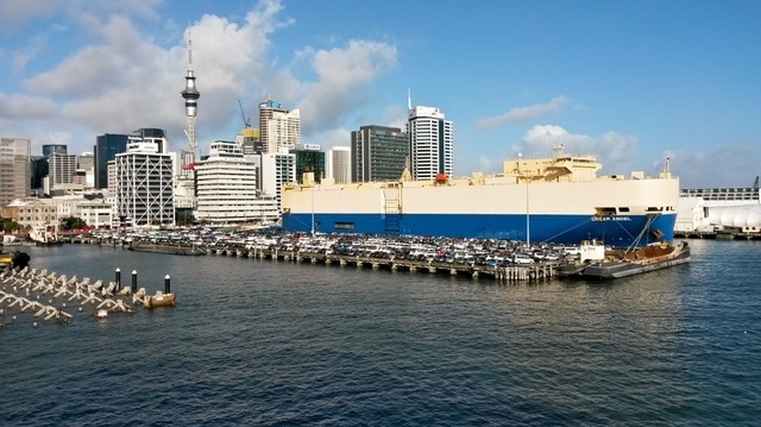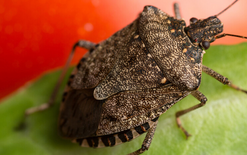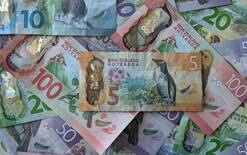Rules tighten in three countries

Armacup says as a consequence of finding brown marmorated stink bugs (BMSBs) in cargo originating from Japan earlier this year, biosecurity authorities in New Zealand, Australia and Fiji have brought in extra stringent rules for imports from identified BMSB countries, which include Japan.
The company has issued an advisory on the new requirements for cargos originating from Japan and shipped on Armacup vessels.
As per Ministry of Primary Industries (MPI) instructions, Armacup will only be able to load cargos destined for New Zealand that comply with the import health standard (IHS), including the requirement to have cargos certified and labelled.
Importers of goods are fully responsible for the adherence to the IHS, and Armacup urges all importers and exporters of goods from Japan to New Zealand to be fully aware of the MPI’s new directives.
“We also wish to bring to your attention that required treatments and processes will result in additional costs, which will be account shipper or consignee,” says Armacup.
“Heat-treatment providers’ tariffs will be additional to existing biosecurity cleaning requirements carried out in Japan. Certification as per MPI requirements is to be presented to our booking agents prior to loading in Japan. Facilities are being set up in Japan to ensure cargos that require heat treatment can be processed in time prior to shipment after September 1.”
Armacup says importers should refer to the following for more information: the Motor Industry Association – www.mia.org.nz, the Imported Motor Vehicle Industry Association – www.via.org.nz and the MPI www.mpi.govt.nz.
The Department of Agriculture and Water Resources in Australia has indicated increased surveillance of vessels and cargos on arrival for possible BMSBs, as well as other undesired insects and biosecurity risks. Vessels are to report findings en-route and any reported biosecurity risks will result in expensive delays and treatment on arrival in Australian ports.
The Biosecurity Authority of Fiji is requesting insecticide treatment of vehicles before loading, and fogging of vessels prior to arrival in Fiji during the BMSB season with further inspections for various biosecurity risks on arrival.
Based on industry experiences during the previous BMSB season, Armacup does not consider these measures to be sufficient to avoid BMSB contamination of cargos and its vessels. Discovery of live BMSBs on-board will result in substantial delays and costs and, in worst-case scenarios, full rejection of vessel and cargos in any of the ports called.
“Used vehicles and machinery transhipped in New Zealand to other destinations are also subject to the IHS and are equally affected,” says Armacup.
“As a result, during the BMSB season – September 1 to April 30 – the following will be implemented. All used vehicles and machinery, including field-tested new machinery, shipped on Armacup vessels from Japan are to be heat treated, certified and labelled before loading. Non-treated vehicles will not be accepted for loading.
“Treatment costs will need to be borne by the cargo interests. Certification as per MPI requirements is to be presented to our booking agents prior to loading in Japan.”
Also, as per the new IHS effective December 1, all used machinery shipped to New Zealand will have to be cleaned/treated and labelled prior to loading. Certification is to be presented to Armacup’s agents before loading.
Armacup advisory on provisional IHS
Armacup said the final version of the revised IHS was expected to be approved by August 9 and it was provisional until then the new IHS was provisional.
“As an importer, as per the Biosecurity Act 1993, you are fully responsible for adherence to the IHS and any costs associated with non-compliance,” the company advised at the time. “It’s important you are familiar with the requirements. There will be major changes affecting shipments from Japan.
“During the BMSB season, covering loading Japan from September 1 until discharge in New Zealand on April 30, all used vehicles are to be heat treated in Japan by an approved MPI-system operator. Additionally, for 12 months per year, every used vehicle must be managed under an MPI-approved used-vehicle system prior to loading in Japan.
“All used machinery must be cleaned and have a cleaning certificate provided by an approved MPI provider, and treated by an MPI approved treatment process for BMSB prior to loading in Japan. All new vehicles and machinery must be treated to manage the BMSB during the stink-bug season or must be managed under an MPI-approved new vehicle and machinery system.
“For importers of new vehicles and machinery from Japan, we recommend for your cargos to be processed through an MPI-approved system. For more details click here.
“For used vehicles and machinery from other countries – including China, Korea and Australia, the new IHS will require thorough cleaning prior to loading. Importers will also be required to provide a cleaning certificate. Further inspections will take place by the MPI on arrival in New Zealand.
“The MPI has advised shipping lines any cargo that doesn’t comply with the new regulations will not be given permission to discharge in New Zealand. Shipping costs for vehicles treated will increase when shipped after September 1.
“Please also click here for further information on the IHS, including guidance documents and details on BMSBs.”





